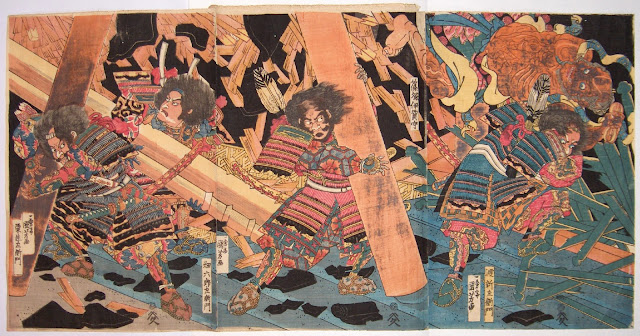The Best Defence is a good Offence
 The adage 'the best defence is a good offence' has echoed through history in various forms and has appeared in writings from Machiavelli to Sun Tzu. Also known as the strategic offensive principle of war, it states that active offensive action instead of a passive attitude will pressure the opposition and hinder counter offensives, which lead to strategic advantage.
The adage 'the best defence is a good offence' has echoed through history in various forms and has appeared in writings from Machiavelli to Sun Tzu. Also known as the strategic offensive principle of war, it states that active offensive action instead of a passive attitude will pressure the opposition and hinder counter offensives, which lead to strategic advantage. Although this is a well known concept, many martial arts around the world prefer to focus on reactive defence for one reason or another. In Judo for instance, I was told that Judo (for self-defence) is the 'Gentle Way' and should not be used to attack - ever. In Aikido there is a similar mentality, wait for the opponent to attack and use their power against them. The only martial arts you won't find this trend is in combat sports like Boxing or Muay Thai, where being passive will cost the participant points or possibly end up in a knock-out.
Many combat sports practitioners know how to attack effectively; they can throw a punch that will knock you out or grab and throw you on the ground before you can blink. The side-effect of this offensively focused training is that people who train in these combat sports always receive effective techniques and can develop strong counter-offensive methods or ideas. It's a feedback loop that reinforces itself, the attack becomes more effective so the defence needs to improve or the practitioner will get hit or hurt.
In contrast, many 'self-defence' minded martial arts place such a heavy focus on reacting or defending that the simulated attackers (other members of the dojo) have such weak attacks that it wouldn't even matter if what the defender did was effective or not. This is also a feedback loop, but going the other way with each iteration of the technique or form becoming weaker and more watered down.
An analogy would be a tennis club that only practices service returns (returning the ball after the first serve). If that is all they practice, is the one serving the ball making effective serves?
There is an Inyo (Yin Yang) relationship here, two opposites working toward the same goal. I believe a martial arts student should learn effective attacks first before learning any kind of defence, because any defence will only be as good as the initial attack.


